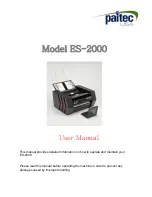
INSPECTION AND EXAMINATION
Keep these instructions, or a copy with
the harness to aid future inspection, and
examination.
The equipment must be given a full
inspection when delivered to site/works,
and before every use.
Current European standards state at
least every 12 months the equipment
must be visually examined by a
competent person authorised by
SpanSet, and the results recorded.
SpanSet recommends inspection by
a competent person every 6 months.
Particular attention should be paid to
the following:-
Webbing
Check for cuts, cracks, tears, abrasion*
and scorch marks, burns or chemical
attack.
Stitching
Look for broken stitch, loose or worn
threads.
Metalware
Inspect for signs of damage/distortion/
corrosion, and correct operation of
buckles.
Labelling
Ensure label details are legible.
Materials
All webbing and threads used in this
harness are produced from polyester.
* Local abrasion as distinct from general
wear may be caused by the passage
of the webbing over sharp edges or
protrusions while under tension and may
cause serious loss of strength. Slight
damage to outer fi bres and occasional
yarn may be considered harmless but
serious reduction in width or thickness
of the webbing or serious distortion
to the weave pattern should lead to
rejection.
A harness should be immediately
removed from service after being
subjected to any fall, or if in any doubt
about the harnesses condition. The
harness shall not be used again until it
is confi rmed in writing by a competent
person that it is acceptable to do so.
The harness may be cleaned or
disinfected if required. The following
procedure must be adhered to. Use
hand hot water with a mild detergent
or disinfectant, then rinse with clean
water, and allow drying naturally, out
of direct sunlight. Any detergent or
disinfectant used must be compatible
with polyamide, and polyester.
If you require more information please
contact SpanSet.
All equipment should be stored and
transported in the following manner:-
- To prevent contact with sharp
objects that may damage the fi bres
of the webbing.
- Away from harmful substances such
as acids, alkalis, fuel, paints,
solvents that harm polyester and
nylon
fi
bres.
- Kept in a cool dry place free from
direct sunlight, to prevent
degradation of the fi bres from
ultraviolet
radiation.
- Wetness of the equipment should
be allowed to dry naturally away
from direct heat.
PRODUCT LIFE
It is mandatory by European Law
that all PPE must be supplied with
comprehensive User Instructions which
detail the lifespan of the product, and
the inspection requirements.
The actual frequency of the periodic
inspection is the responsibility of the
competent person in charge of the
maintenance of the product. Aggressive
or arduous conditions and constant use
will potentially reduce the working life
of the product and so a more frequent
inspection regime will be required to
effectively monitor this.
SpanSet recommend that PPE for Work
at Height is thoroughly examined by a
competent person:
- Periodically at intervals not
exceeding 6 months
- Interim inspections where required
SpanSet recommend that Pre Use
inspection is carried out by the user
before each and every use. Any concerns
about the condition of equipment must
result in the item undergoing a thorough
interim inspection.
The equipment should only be used if it
is found to be in a fi t condition.
In addition SpanSet give this product a
period of obsolescence of 10 years from
date of manufacture, even if never used.
Products should be withdrawn from
service if they meet any one of the
following criteria:
1) Failure of a thorough examination
2) Subjected to or Used to arrest a fall
3) Manufacturers period of
obsolescence (shelf-life) has been
reached
Compatibility and use of PPE is the
responsibility of the user.
SpanSet Ltd,
Telford Way, Middlewich, Cheshire,
CW10 0HX
Tel: +44(0)1606 737494
Fax: +44(0)1606 737 264
Internet: www.spanset.co.uk
Harness
Fitting and Use Instructions
Inspection and Examination





































